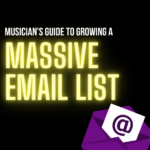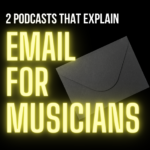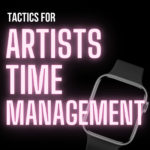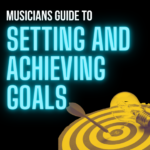Your email list is the most important asset you can have as a musician.
But once you have an email list and you know all the ways to get people on it, you’re faced with the inevitable obstacle of “how do I make sure I’m actually landing in their inbox…and that they’re opening my email?”
Another surprising statistic? Most people’s email open rates will hover around 21% but a very healthy email open rate is anything above 40%. Plus, you already know that if you’re doing email right, you can expect to convert $1 per subscriber/month. Do that math quickly and tell me you’re not intrigued!
Capturing your fans’ email is only the first step of a successful email marketing campaign. Now that you’ve got them, and they’re eager to hear from you, how do you make sure you land in their inbox (and not the dreaded “promo” folder 😱) and get them to actually open it?
We explore the 9 hacks we have found to be the most useful in getting your subscribers to open your emails.
Consistency is Key
Like everything, consistency matters. If your fans are only hearing from you periodically, every month or 3 months then they probably aren’t going to open because they’re forgetting about you in between.
To avoid this, create a schedule and stick to it. For instance, every other Tuesday at 11am. Your frequency will depend on your audience but I suggest no less than once a month (and ideally, more like once a week).
Explore Different Send Times
I want to break the myth that there’s some perfect time to send emails. There’s not. There are a lot of studies that will suggest different dates and times (for instance, Tuesdays around 10am tend to be a universally great time to send emails and Fridays tend to be universally so-so.) But the truth is, if your audience wants to hear from you, they’ll open it.
Still, sending at certain times can give you just enough of an advantage to get fence sitters on board. Just make sure once you have them you keep them. You can do that by…
Create Content Worth Opening
I know, it’s painfully obvious, but for good reason. A lot of bands tend to lose their audience before they’ve even had a chance to begin, because their emails are just dull (sorry). If you’re struggling with consistency, try this: don’t just write emails when you have a new song or show. In fact, most of your bond building with fans will come from the opposite. From weekly or biweekly emails sharing little stories about your week, the things that caught your attention, the things on your mind, the things you want to know from them. Take the time to write like you’re writing to a friend and you might be surprised how much content you come up with.
A couple other ideas: use emojis. Write like you talk (like you’re chatting with a friend) Keep it light or don’t—use your real personality. Show them who you are. If they have short attention spans, keep it short. If they love long introspective thoughts, do that. If you don’t know–experiment or straight up ask them what they prefer! They’ll tell you.
A Subject Line They Can’t Resist
This one is tough, I’ll give you that. But having a really juicy subject line is an important piece of your strategy. It has to be eye catching but not gimmicky. It has to relate to the content, but hook your audience. Play around with things like using all lowercase letters, adding their name, using quotes, asking questions, etc. If you’re really stuck, try using Chat GPT to suggest a few subject lines related to your content.
Bonus tip: Use A/B tests for your subject lines. This helps you test different strategies and what will resonate with your audience.
Stay Out of Gmail’s “Promo” Folder
First let’s talk about why your emails end up in the promotions tab to begin with (It’s not because the universe hates you). Generally it’s because you’re sending a marketing email (or mass email) offering deals/promotions/etc. This is difficult to get around because well, you are doing those things.
Good news? There are a few work arounds that can reduce the odds of ending up there.
Here’s how:
Segment Your List
To segment is to organize your list in a way that honors your fans and where they’re at in their customer journey with you.
For instance, you might have segments that include fans from the Midwest, fans from the East Coast, fans that have bought something from you, and so on.
By segmenting your list you can get more personal with the emails you send, because you’re talking to a very specific audience. So, if you’re heading NYC your mid-west people might not care, but you can target the NYC segment with a few extra emails letting them know when you’ll be in town and why they should come out. You can talk about that famous pizza place nearby and ask for other local recommendations.
Scrub Your List
A very strange way of saying: get rid of the people who aren’t opening your emails. They’re dragging down your deliverability, and they’ve got to go.
I suggest sending them one last email asking if they want to stay, but if they don’t respond within a week, get rid of ‘em!
Keep It Simple
The more your emails look like they were written to a friend, the less likely Gmail is to think it’s a promotion and slide it in that folder. This usually means text only, not a ton of links, and no photos.
In other words, if you don’t want it to act like a promo email, don’t decorate it like one.
Avoid Trigger Words
Things like “free, sale, offers, clearance, get paid” and so on are all words that make Gmail angry and send you to the promo tab. While it’s unlikely you’ll be using those words in your music emails, it’s not hard to see how phrases like “free song” or “free show” can end up in there.
A few more surprising trigger words?
Acceptance
Hidden
Solution
Dear (person’s name)
Click here
Click below
Final Thoughts
Having a healthy email list isn’t as complicated as it seems. At the end of the day it just comes down to writing emails to friends and family and letting them know what you’re up and how they can participate. Easy peazy.
Oh and don’t forget to always include an unsubscribe! It’s the law but also, if they don’t want to be there, let ‘em go and focus on those that want to be there.
Still aren’t clear on who your ideal fan is? Download Your Free How To Identify Your Ideal Fan Exercise that will walk you through what those communities are and how to actively engage them.












